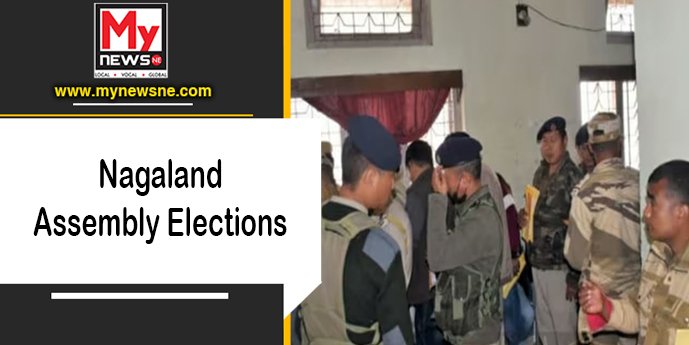Postal ballot vote casting begins in Nagaland
Guwahati: Poll workers, police officers, and other people drafted for electoral duties started voting postal ballots for the upcoming February 27 elections to the 14th Nagaland Legislative Assembly.
The conclusion of the five-day postal ballot voting, which takes place from 9 am to 4 pm will take place on February 24 in various locations around the districts.
Nagaland chief electoral officer (CEO) V Shashank Shekhar cast his vote through postal ballot for the Kohima Town assembly seat at Kohima DC’s office on February 22.
Shekhar expressed his joy at participating in the Nagaland poll, which has been dubbed the festival of democracy. In order to ensure that the elections are held in the true spirit of democracy, he expressed hope that everyone would band together.
Additional CEO Ruokuoviltuo Khezhie was one of the other officials to utilise their right to vote today.
The CEO today hosted an interactive session with campus ambassadors from several government higher secondary schools and colleges in Nagaland at his office as part of a systematic voter education and electoral engagement initiative.
He urged the students to cast fair and ethical votes in the election. The students discussed their views on casting ballots based on the qualifications and qualifications of the candidates rather than being coerced by money and pressure.
The voter information slip, which is prepared and given to voters to help them know the serial number of the electoral roll in their polling station, the date of the election, and the hour, will not be accepted as proof of identity, the CEO also announced in a public notice.
All voters who have been handed electors picture identity cards (EPIC) must present them for identification at the polling place before casting a ballot, according to the notice.
Aadhaar cards, MNREGA job cards, passbooks with photographs issued by banks and post offices, PAN cards, driving licences, service identity cards with photographs issued to employees of central or state government PSUs or public limited companies are just a few examples of alternative photo identity documents that voters without EPICs will need to present.

